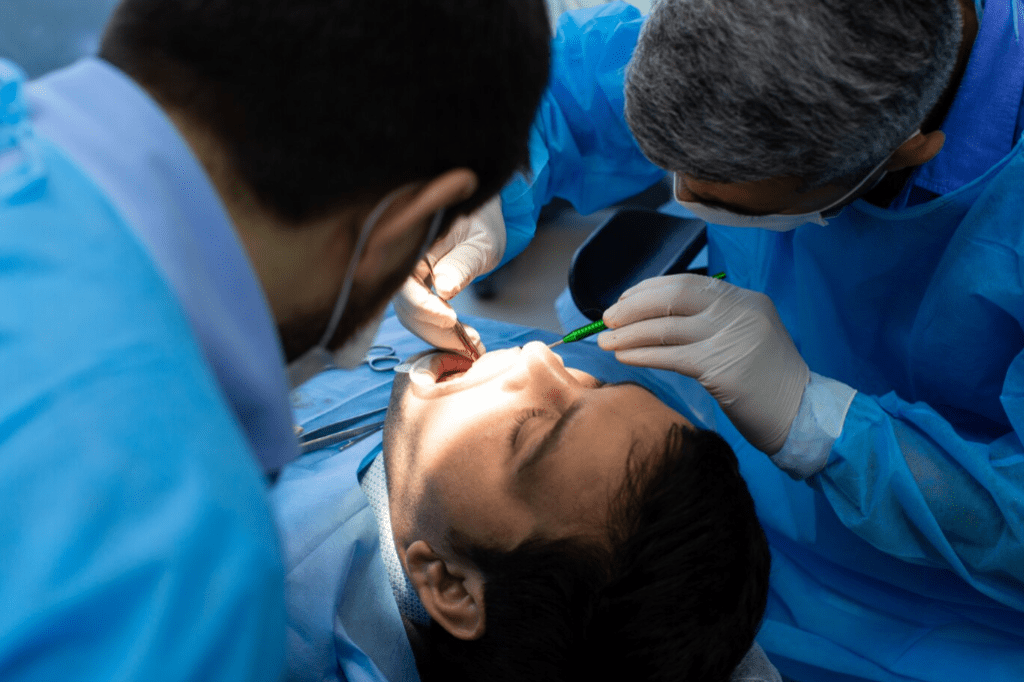Oral surgery can feel intimidating, but the right preparation can make the process smoother and less stressful. Whether you’re facing a wisdom tooth extraction, dental implant placement, or another procedure recommended by your oral surgeon, taking the proper steps beforehand can greatly impact your experience. By following these guidelines, you’ll be well-prepared for a successful procedure and a smooth recovery.
Consultations and Pre-Surgery Appointments
Before your surgery, you’ll typically have one or more consultations with your oral surgeon. During these visits, your oral surgeon in Salt Lake City will evaluate your specific needs, review your medical history, and discuss the procedure in detail. Use this opportunity to ask any questions you may have regarding recovery time, pain management, or potential risks. Be sure to disclose any medications, supplements, or medical conditions, as this information is crucial in creating a safe surgical plan.
It’s also a good time to talk about anesthesia options. Oral surgery may involve local anesthesia, sedation, or general anesthesia, depending on the complexity of the procedure. Confirming these details ahead of time will ensure you’re mentally and physically prepared when the day arrives.
Plan for Time Off and Recovery
Recovering from oral surgery requires proper rest and downtime. To ensure a smooth recovery, consider taking one or more days off from work, school, or other responsibilities, as advised by your oral surgeon. The time needed to return to your usual activities will depend on the complexity of the procedure. For more extensive surgeries, it may take several days of rest before you feel fully at ease again.
Preparing your home for recovery is equally important. Stock up on soft foods such as yogurt, applesauce, and soup to avoid chewing hard foods post-surgery. Additionally, ensure you have ice packs on hand to manage potential swelling and any prescribed pain medications ready for use.
Instructions for the Day of Surgery
To prepare for your procedure, it’s important to follow key steps to ensure everything goes smoothly. If sedation or general anesthesia is involved, your oral surgeon will likely instruct you to refrain from eating or drinking for a designated period beforehand. On the day of the surgery, wear loose, comfortable clothing and arrange for a trusted friend or family member to accompany you for support and transportation.
To avoid complications, refrain from smoking or consuming alcohol for at least 24 hours before your surgery. For individuals on regular medications, confirm with your oral surgeon whether any adjustments are necessary leading up to the procedure.
Tips for Managing Recovery
The recovery process after oral surgery varies depending on the procedure, but proper care is key to a smooth healing journey. Your oral surgeon will provide detailed post-operative instructions, and following them closely is crucial to reduce the risk of complications or infection. Common advice includes limiting physical activity and keeping your head elevated to minimize swelling. Applying cold compresses can help alleviate discomfort, while any prescribed or over-the-counter medications should be taken exactly as directed.
In the initial days, stick to soft foods to nourish your body, gradually reintroducing solids once your surgeon gives the go-ahead. Staying hydrated is equally important—drink plenty of water, but avoid using straws to prevent unnecessary pressure on the surgical site. By adhering to these guidelines, you can support your recovery and ensure optimal healing.
When to Contact Your Oral Surgeon
While most oral surgeries carry minimal risk, it’s essential to closely monitor your recovery and know when to seek additional care. Reach out to your oral surgeon if you experience excessive bleeding, persistent pain, fever, or worsening swelling. Prompt communication enables your healthcare provider to address any issues and support your healing process effectively.
Scheduled follow-up appointments are another critical aspect of the healing process. During these visits, your oral surgeon will confirm that your recovery is progressing as expected and provide guidance on the next steps.
Conclusion
Preparing for oral surgery doesn’t have to feel daunting. With thoughtful planning, open communication with your oral surgeon, and a focus on recovery, you can face your procedure with confidence. Every case is unique, so it’s essential to follow the personalized guidance of your surgeon to achieve the best results. By taking these proactive steps, you can ensure a smoother experience and lay the groundwork for lasting oral health after your surgery.

